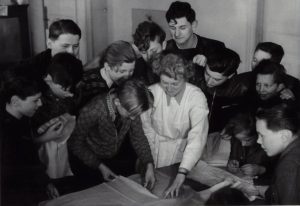Achieving Win-Win Solutions: Strategies for Finding Mutual Benefits in Any Negotiation
Negotiation is a crucial aspect of human interaction, occurring in various contexts such as business, politics, and personal relationships. It involves two or more parties with different interests and objectives working together to reach an agreement. Traditionally, negotiations have been viewed as zero-sum games, where one party’s gain is perceived as another’s loss.
However, the concept of win-win solutions in negotiation challenges this perspective by seeking outcomes that benefit all involved parties. This approach is founded on the principle that mutually advantageous agreements are not only possible but also preferable for establishing long-term relationships and fostering trust. Win-win solutions in negotiation are significant for several reasons.
They promote fairness and equity, ensuring all parties are satisfied with the outcome, which can lead to stronger relationships and increased future collaboration. These solutions often result in more creative and innovative agreements by encouraging parties to consider alternative options and think beyond conventional approaches. Additionally, win-win solutions can help minimize conflict and build trust between parties, creating a more positive and productive negotiation environment.
The importance of win-win solutions in negotiation extends to both personal and professional settings. Whether negotiating a business deal, resolving a conflict, or making decisions with a partner, the ability to negotiate effectively can significantly impact the outcome. This approach focuses on finding mutually beneficial agreements that address the interests and goals of all parties involved.
It is based on the belief that cooperation and collaboration can yield better results than competition and conflict. By understanding and implementing win-win strategies, individuals can develop the necessary skills and mindset to create positive and sustainable agreements that benefit all parties involved.
Key Takeaways
- Win-win solutions in negotiation are important for creating mutually beneficial outcomes for all parties involved.
- Identifying common interests and goals is crucial for finding areas of agreement and building a foundation for collaboration.
- Building trust and collaboration is essential for creating an environment where all parties feel comfortable sharing their needs and concerns.
- Effective communication and active listening are key skills for understanding the perspectives of all parties and finding common ground.
- Generating creative options and alternatives can help in finding solutions that meet the needs and interests of all parties involved.
Identifying Common Interests and Goals
Looking Beyond Surface-Level Positions
To achieve win-win solutions in negotiation, it’s essential to identify common interests and goals among the parties involved. This involves looking beyond surface-level positions and understanding the underlying needs and motivations of each party. By identifying common interests and goals, negotiators can work together to find creative solutions that address everyone’s concerns and lead to mutually beneficial outcomes.
Building Trust and Rapport Through Open Communication
This process requires open communication, active listening, and a willingness to collaborate in order to uncover shared interests that can serve as the foundation for a win-win agreement. Identifying common interests and goals is crucial for building trust and rapport between parties in a negotiation. When individuals recognize that they share common objectives, it can create a sense of unity and cooperation that paves the way for productive discussions and positive outcomes.
Shifting Focus from Adversarial to Collaborative
By focusing on shared interests, negotiators can move away from adversarial positions and towards a more collaborative approach that seeks to find solutions that benefit everyone involved. This not only leads to better agreements but also fosters stronger relationships and lays the groundwork for future collaboration. In negotiation, it’s easy to get caught up in opposing positions and overlook the common ground that exists between parties.
Building Trust and Collaboration

Building trust and collaboration is essential for achieving win-win solutions in negotiation. Trust is the foundation of any successful relationship, and it’s particularly important in negotiations where parties may have conflicting interests. Without trust, it’s difficult to have open and honest communication, which is essential for finding mutually beneficial agreements.
Collaboration is also crucial, as it involves working together towards a common goal rather than approaching negotiations as a zero-sum game. By building trust and collaboration, negotiators can create an environment that fosters creativity, innovation, and positive outcomes for all parties involved. Trust is built through consistent and transparent communication, reliability, and a genuine commitment to understanding the needs and concerns of the other party.
When negotiators demonstrate integrity and follow through on their commitments, it helps to build trust and credibility. Collaboration involves actively seeking input from all parties, sharing information openly, and working together to find solutions that address everyone’s interests. By fostering an environment of trust and collaboration, negotiators can create a positive and productive atmosphere that is conducive to reaching win-win agreements.
In negotiation, trust and collaboration are essential for creating an environment where all parties feel comfortable expressing their needs and concerns. When individuals feel heard and respected, it creates a sense of goodwill that can lead to more constructive discussions and better outcomes. By building trust and collaboration, negotiators can lay the groundwork for successful win-win agreements that benefit everyone involved.
Effective Communication and Active Listening
Effective communication and active listening are critical skills for achieving win-win solutions in negotiation. Communication involves expressing one’s needs and concerns clearly and respectfully, as well as actively seeking to understand the perspectives of the other party. Active listening requires giving full attention to the speaker, asking clarifying questions, and demonstrating empathy and understanding.
By mastering these skills, negotiators can create an environment where open dialogue and mutual understanding can lead to creative solutions that benefit all parties involved. Effective communication involves being clear, concise, and respectful in expressing one’s needs and concerns. It also requires actively seeking input from the other party and being open to feedback and alternative perspectives.
Active listening involves giving full attention to the speaker, asking clarifying questions to ensure understanding, and demonstrating empathy and understanding towards the other party’s concerns. By practicing effective communication and active listening, negotiators can create an atmosphere of mutual respect and understanding that is conducive to finding win-win solutions. In negotiation, effective communication and active listening are essential for creating an environment where all parties feel heard and understood.
When individuals are able to express their needs clearly and listen actively to the concerns of others, it creates a foundation for productive discussions and positive outcomes. By mastering these skills, negotiators can create an atmosphere of mutual respect and understanding that is essential for achieving win-win agreements.
Generating Creative Options and Alternatives
Generating creative options and alternatives is crucial for achieving win-win solutions in negotiation. This involves thinking outside the box and considering a wide range of possibilities that can address the needs and concerns of all parties involved. By generating creative options, negotiators can move beyond traditional solutions and explore new ideas that have the potential to lead to mutually beneficial agreements.
This process requires open-mindedness, flexibility, and a willingness to consider alternative perspectives in order to find innovative solutions that satisfy everyone’s interests. Creative options and alternatives can be generated through brainstorming sessions, exploring different scenarios, or seeking input from outside sources. By considering a wide range of possibilities, negotiators can uncover innovative solutions that may not have been apparent at first glance.
This process requires a willingness to challenge assumptions, think creatively, and explore new ideas in order to find win-win agreements that benefit all parties involved. In negotiation, generating creative options and alternatives is essential for finding solutions that go beyond traditional thinking and lead to mutually beneficial outcomes. By exploring new ideas and considering a wide range of possibilities, negotiators can uncover innovative solutions that have the potential to satisfy everyone’s interests.
By generating creative options, negotiators can create a foundation for successful win-win agreements.
Balancing Power Dynamics

Recognizing the Importance of Power Balance
Balancing power dynamics is crucial for achieving win-win solutions in negotiation. Power imbalances can create an environment where one party feels disadvantaged or marginalized, making it difficult to reach mutually beneficial agreements. By balancing power dynamics, negotiators can create an environment where all parties feel empowered to express their needs and concerns openly without fear of reprisal or disadvantage.
Creating a Level Playing Field
This involves recognizing power differentials, seeking input from all parties, and working towards creating a level playing field where everyone’s interests are taken into account. Balancing power dynamics requires creating an environment where all parties feel empowered to express their needs openly without fear of reprisal or disadvantage. This involves recognizing power imbalances, seeking input from all parties, and working towards creating a level playing field where everyone’s interests are taken into account.
Fostering Mutual Respect and Win-Win Agreements
By balancing power dynamics, negotiators can create an environment where all parties feel empowered to express their needs openly without fear of reprisal or disadvantage. In negotiation, balancing power dynamics is essential for creating an environment where all parties feel empowered to express their needs openly without fear of reprisal or disadvantage. By recognizing power imbalances and working towards creating a level playing field where everyone’s interests are taken into account, negotiators can create an atmosphere of mutual respect that is conducive to finding win-win agreements.
Implementing and Maintaining Win-Win Agreements
Implementing win-win agreements involves ensuring that all parties follow through on their commitments in order to achieve the desired outcomes. This requires clear communication, accountability, and a willingness to address any issues or concerns that may arise during the implementation process. By implementing win-win agreements effectively, negotiators can demonstrate their commitment to creating positive outcomes for all parties involved.
Maintaining win-win agreements involves ongoing communication, monitoring progress towards agreed-upon goals, and addressing any issues or concerns that may arise over time. By maintaining win-win agreements effectively, negotiators can ensure that the positive outcomes achieved through negotiation continue to benefit all parties involved in the long term. In conclusion, understanding the importance of win-win solutions in negotiation is crucial for achieving mutually beneficial outcomes and building strong relationships based on trust and collaboration.
By identifying common interests and goals, building trust through effective communication and active listening, generating creative options and alternatives, balancing power dynamics, implementing win-win agreements effectively, negotiators can create an environment where positive outcomes are possible for all parties involved.
FAQs
What are win-win solutions in negotiation?
Win-win solutions in negotiation refer to outcomes that result in mutual benefits for all parties involved. It involves finding a solution that meets the interests and needs of all parties, rather than a zero-sum game where one party’s gain is another party’s loss.
Why are win-win solutions important in negotiation?
Win-win solutions are important in negotiation because they help build and maintain positive relationships between parties. They also promote trust, collaboration, and long-term success. By finding mutual benefits, all parties are more likely to be satisfied with the outcome and willing to work together in the future.
What are some strategies for achieving win-win solutions in negotiation?
Some strategies for achieving win-win solutions in negotiation include active listening, identifying common interests, exploring creative options, and maintaining a problem-solving mindset. It’s also important to be open to compromise and to communicate effectively with the other parties involved.
Can win-win solutions be achieved in any negotiation?
While it may not always be possible to achieve win-win solutions in every negotiation, it is generally a good goal to strive for. By approaching negotiations with a focus on mutual benefits and collaboration, parties can increase the likelihood of finding win-win solutions, even in challenging situations.













Post Comment